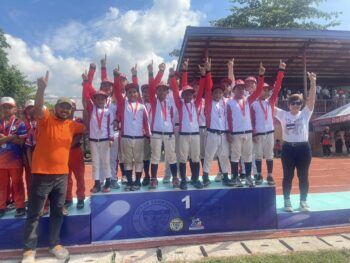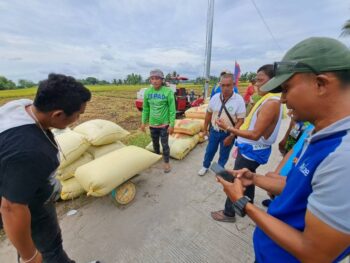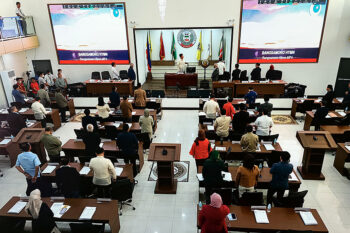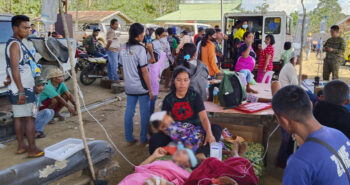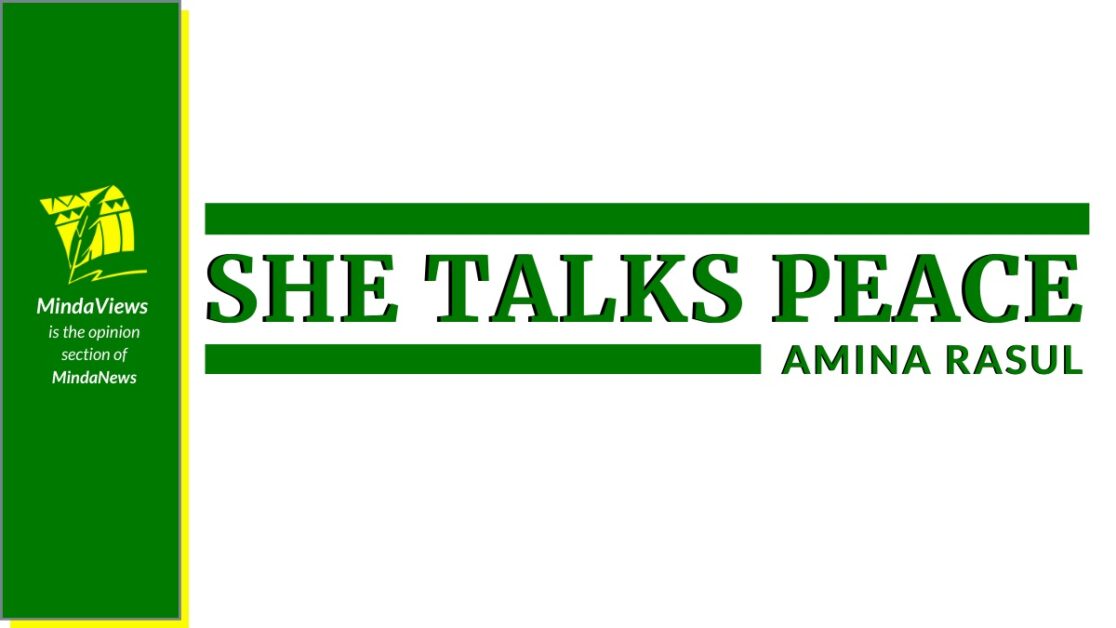
QUEZON CITY (MindaNews / 06 March) — “The crisis in Ukraine has exposed how the Association of Southeast Asian Nations (ASEAN) – once again – is divided as it fails to confront a pressing security challenge head on and through a forceful and unified voice.” Radio Free Asia
I can understand the position of Vietnam, Indonesia, Malaysia and Myanmar. After all, Russia has sold fighter jets to them. According to the Stockholm International Peace Research Institute, 84 percent of Vietnam’s weapons imports, from 2000 to 2019, came from Russia. The Philippine government issued a condemnation of the attack on Ukraine a week after it started, supporting the United Nations General Assembly resolution. Perhaps because we only got some COVID-19 vaccines?
The impact of Russia’s invasion of Ukraine on us goes beyond the increase of oil prices. It goes beyond our outrage over the bombings of Ukraine, which has led to almost million refugees – mostly women and children – fleeing their home, their country and leaving the men behind to fight the aggressors. Unchecked, this unprovoked assault on a peaceful, democratic and sovereign country can only embolden Russia’s ally, China, as it has claimed the Spratlys. How easy it would be for China to expand its territory. As it is, we are inutile in protecting our sovereignty over the Spratlys.
Watching the coverage of the war – the pain and sorrow of the innocents – brings back fearful memories of the bombings of our Muslim communities during the Martial Law years. How peaceful Muslim communities became hotbeds for insurgency and armed conflict almost overnight. And the rise of the Moro National Liberation Front, fueled by the abuses committed against the Moros. I have wondered how this war in the heart of Europe could affect our own security concerns, not just from China but from violent extremism.
Should the war spill over to NATO countries, violent extremist groups will be ecstatic and can confidently plan expansion strategies in our region. Their arch enemies will be too busy in Europe to pay attention. I hope and pray that the West will find a peaceful resolution of the crisis in Ukraine soon.
Meanwhile, we have our reality to contend with – how to counter or prevent violent extremism in our region. Today’s episode on “She Talks Peace” with a colleague and friend, Noor Huda Ismail, simultaneously gives me hope and trepidation.
Noor Huda is is an author, filmmaker, activist, and self-described “repentant journalist.” Founder of the Institute for International Peace Building in Indonesia, he looks at the larger story about terrorism and why people join violent organizations. He is now a Fellow at the S. Rajaratnam School of International Studies (RSIS), Nanyang Technological University in Singapore.
The core of his work is in helping former terrorists find their new callings in life. No one is born a terrorist. Complicated circumstances may have led to people to becoming terrorists, but he sees their human qualities. He maintains that the energy that they devoted to violent extremism cannot be destroyed, but it can be channeled to something completely different that gives them meaning.
His approach to help individuals escape violent extremism networks begins with the heart. He relates this to earning their trust, which, in turn, involves being one’s authentic self, a human being. This, naturally, involves one’s humanity, being able to empathize with another human being. He also stresses the importance of listening, instead of lecturing or relying on one’s assumptions about them. He mentions a project he had with prisoners in prison, and notes that the project did not involve radicalization, ideology, or the interpretation of Islam. Rather, he did cooking classes in these prisons, and related food to positive feelings and human relations. He was able to establish a constructive relationship with the inmates.
The next step is to give them something meaningful to do. An example of this in practice is a coffee shop that Noor set up in Java (2005), which is run by former terrorists. Noor says that once they trust you and have something meaningful, they will revisit their own understanding of things. He recruits former terrorists with this approach, and they become credible voices, sharing their own stories showing violent extremism is not a good path to take. He emphasizes the power of story-telling as a tool that moves people, noting that terrorist groups are well aware of this, and exploit this, adding that one recognized terrorist wrote a PhD dissertation on the role of the poem. Thus, he looks for the credible voices, and helps polish their story in a way that can be relatable and understood by their audiences.
Noor Huda states that perhaps this collaborative approach is more difficult than the programs governments tend to employ. Being “soft and understanding” towards what he calls “co-constructive reality” requires constant engagement. Being tough – the military approach – is easier.
Now here is a mind-blower: Noor Huda challenges the idea that women are more peaceful than men. Women often play a surprising role in the building and maintenance of violent extremist networks. In his experience, a surprising number of men were convinced to join terrorist groups by their wives. Moreover, men inclined to leave terrorist groups and take an oath of loyalty to their national governments have been threatened with divorce by their wives. Imagine that.
Which is one reason why ASEAN member states must invest in establishing and implementing their National Action Plans for Women, Peace, and Security – as the Philippines has done. Women have a vital role to play to strengthen peace, to prevent the growth of violent extremist thought in our children and communities. However, women must be aware of how faith and anger at their impoverished, conflict-affected situation have been manipulated to entice them to support or even join terrorist groups. They must be empowered to be the peacebuilders that they are by nature, desirous of protecting family, community, and faith.
For more of our fascinating conversation with Noor Huda Ismail, do listen to “She Talks Peace,” available on Spotify, Google, Apple podcast and other platforms.
Please Click, Play and Listen on Spotify:
Apple Podcasts:
(MindaViews is the opinion section of MindaNews. Amina Rasul is the President of the Philippine Center for Islam and Democracy, an advocate for Mindanao and the Bangsamoro, peace, human rights, and democracy)


